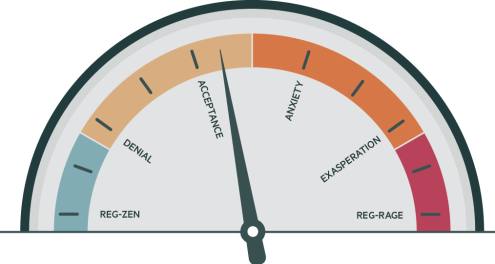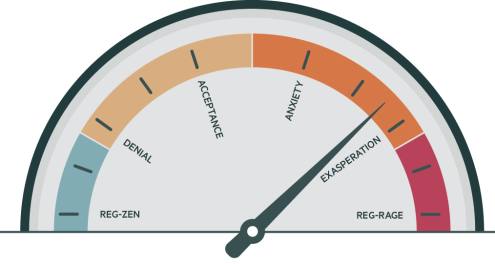What is happening?
The wild child of digital finance is being brought to heel. Brussels, the centre of power in the EU, gave birth to the world’s first piece of formal regulation on crypto in June. Its Markets in Crypto-Assets Regulation (MiCA) aims to provide a framework of “consistent and effective standards” across the bloc.
Crypto issuers will need to: register with authorities; provide complete and transparent information about whatever crypto assets they issue; comply with disclosure and transparency rules; and set up security and anti-money laundering measures.
Following in the footsteps of the EU, the UK’s watchdog for financial services set new standards earlier this month for how firms can market crypto assets to UK consumers. The guidelines mark a significant step towards establishing a regulatory framework in the UK for a high-stakes asset class increasingly commandeered by scammers to commit crime.
The Financial Conduct Authority (FCA) has banned inducements, such as ‘refer a friend’, and crypto firms must now offer customers a 24-hour cooling-off period after sending a direct offer of financial promotion. Even sophisticated investors are not exempt from these rules.
Why is it happening?
Regulators are worried about messiness in the volatile crypto market spilling over to traditional service providers such as banks and affecting financial stability. After the collapse of FTX, Federal Reserve governor Christopher Waller told banks that they needed to know their crypto clients well enough to ensure they are “not left holding the bag if there is a crypto meltdown”.
The fall of Binance and demise of FTX, respectively, have given riskier crypto firms a chance to snap up their customers. The rise of “forum shopping”, where crypto firms set up camp in light-touch offshore centres like the Seychelles yet target customers elsewhere, has also sent EU regulators into a tailspin.
Verena Ross, chair of the European Securities and Markets Authority (Esma), warned: “We are determined to ensure entities involved in crypto asset-related activities understand that the EU is not a place for forum shopping.
“We also want to remind consumers that, even with the implementation of MiCA, there will be no such thing as a safe crypto asset.”
Now Esma is consulting with industry players on developing more granular guidelines under MiCA.
What do the bankers say?
The Association for Financial Markets in Europe (Afme), which represents banks across Europe, was welcoming of the EU’s first stab at governing crypto assets. Afme managing director, James Kemp, said in July that MiCA “will bring regulatory certainty, reduce fragmentation and underpin the development of a robust and well-functioning market”.
He called for further legal certainty on the requirements for custodians of crypto assets, which, increasingly, include banks. He also urged clarity on liability in cases of negligence and misconduct versus events beyond a custodian’s control, such as a state hack.
Mr Kemp said: “The final provisions on liability should ensure that a proportionate and balanced approach is adopted. Going forward it is crucial that MiCA takes into account the broad global context of digitisation, ensuring that the EU remains open to global sources of innovation, standards and markets.”
Will it provide the incentives?
Some banks are backing off from crypto altogether, others are embracing it gung-ho. JPMorgan recently banned its UK retail clients from using their accounts to buy crypto assets. Deutsche Bank, on the other hand, enthusiastically announced a joint venture with Swiss digital asset firm Taurus to offer custody services for its institutional clients.
Société Générale’s crypto unit Forge secured a licence in July to offer custody, trading and sales in France. Other banks, mindful of regulators’ concerns, are taking a more careful approach by pursuing partnerships within their own four walls.
Standard Chartered, for example, is backing Zodia Markets, a crypto assets business that is a majority subsidiary of the UK-regulated bank. This meant that Zodia had to present a risk assessment to the UK’s Prudential Regulation Authority, in addition to registering with the FCA as a crypto asset business.
Banks need to remain vigilant, advises Kate Gee, partner at Signature Litigation. “Institutions will need to revisit and refresh their compliance policies to ensure that they are and remain compliant for any crypto asset activities… [and they] will need to take particular care when interacting with retail customers,” she says.
Farah Khalique is the editor of Banking Risk & Regulation, a service from the Financial Times.






